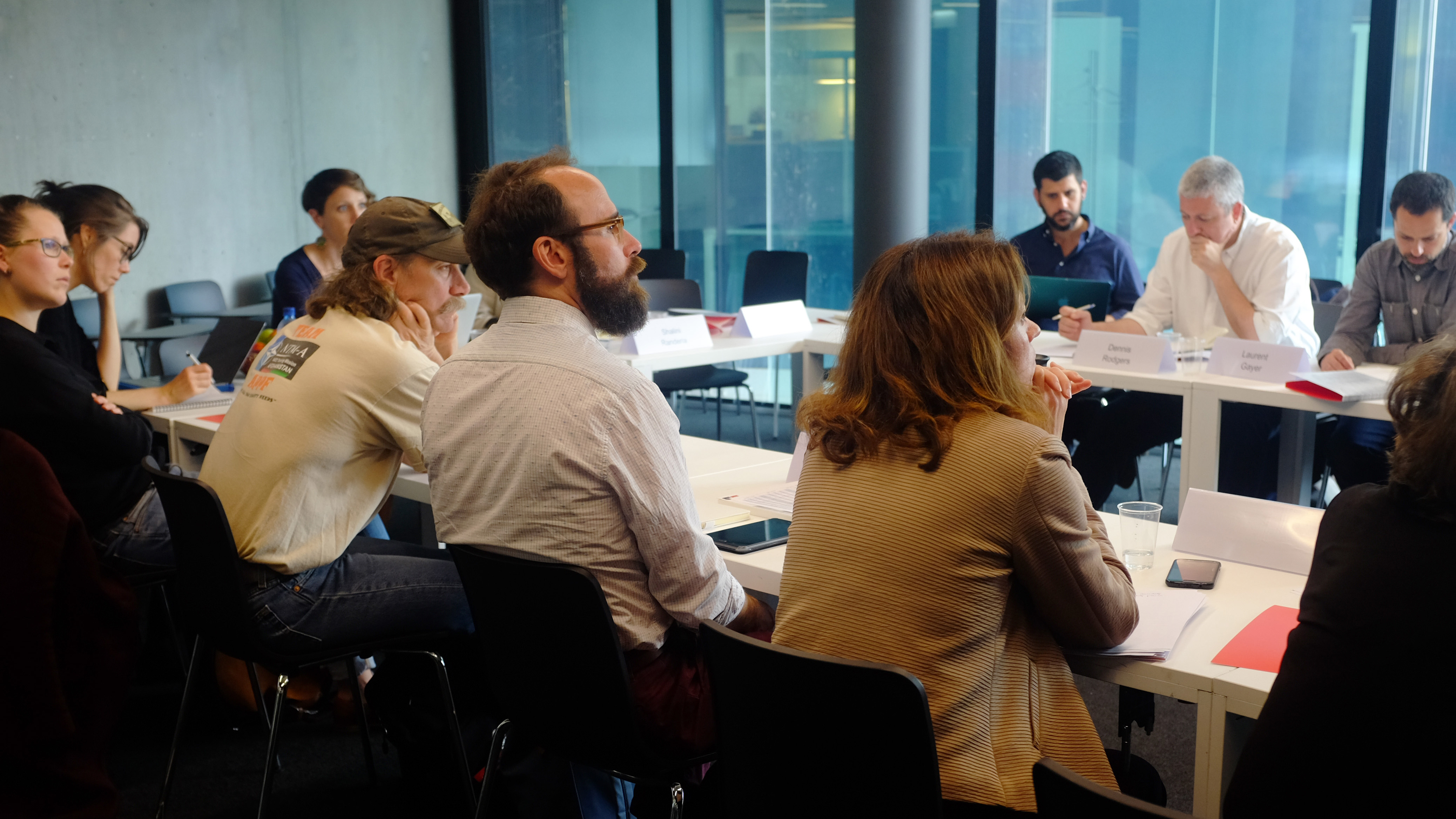From 2-4 May, the Albert Hirschman Centre on Democracy hosted an international conference entitled “Democracy and Disorder: Political Unpredictability, Illiberal Governance and Prospects for Democratic Voice”. The conference, which was convened by post-doctoral research fellow Rebecca Tapscott, brought together leading scholars in political anthropology and political science to explore how disorder can be leveraged to create confusion, uncertainty, and unpredictability, stifling the expression of democratic voice and supporting illiberal ends. The conference, which is part of the Democracy Centre’s research theme on “Disorder and Democratic Voices”, was funded by the Gerda Henkel Foundation’s Special Programme on Security, Society and the State, and the Swiss National Science Foundation.
Over the two-and-a-half days, 12 speakers presented papers on six panels to examine how different types of complex political systems integrate order and disorder, and the implications this has for democratic processes, including expression of political voice. The panels, which were on conceptualising disorder and democracy, (dis)ordering jurisdictions, bureaucratic (dis)order, (dis)ordering the city, violent actors and (dis)order, and (dis)ordering and democracy, reflected international, national, sub-national and transnational cases from Latin America, Africa and Asia.
The contributions offered several takeaways. First, the papers highlighted that political disorder might be productively understood as undermining meaning-making processes. Thus, the participants moved beyond seeing political disorder as non-western, informal, or hybrid institutions. Second, the contributors illustrated that political order and disorder are co-constituting and imbricated in contemporary political institutions. Drawing these two insights together, the workshop participants distinguished between disorder as unexpected, complex, blurry, or bricolaged institutional or political forms – which might better be understood as alternative types of order and form – versus disorder as processes that erode, undermine and disrupt order and form. Disorder has been brought inside our political systems and entangled with order, creating profound implications for democratic accountability, voice and practice. The workshop also included two public events at the Graduate Institute for faculty, students, and the wider Geneva community: a lunchtime lecture on “Sexual Violence, Public Domain, and Disorders of Democracy” (listen to the talk here) with Professor Veena Das (Professor of Anthropology, Johns Hopkins University), and an evening public plenary on “Democracy and Disorder: Political Unpredictability in a Global Age” (watch the video here) with Nina Khrushcheva (Professor of International Affairs, the New School) and Alex de Waal (Research Professor and Executive Director of the World Peace Foundation, Tufts University).



